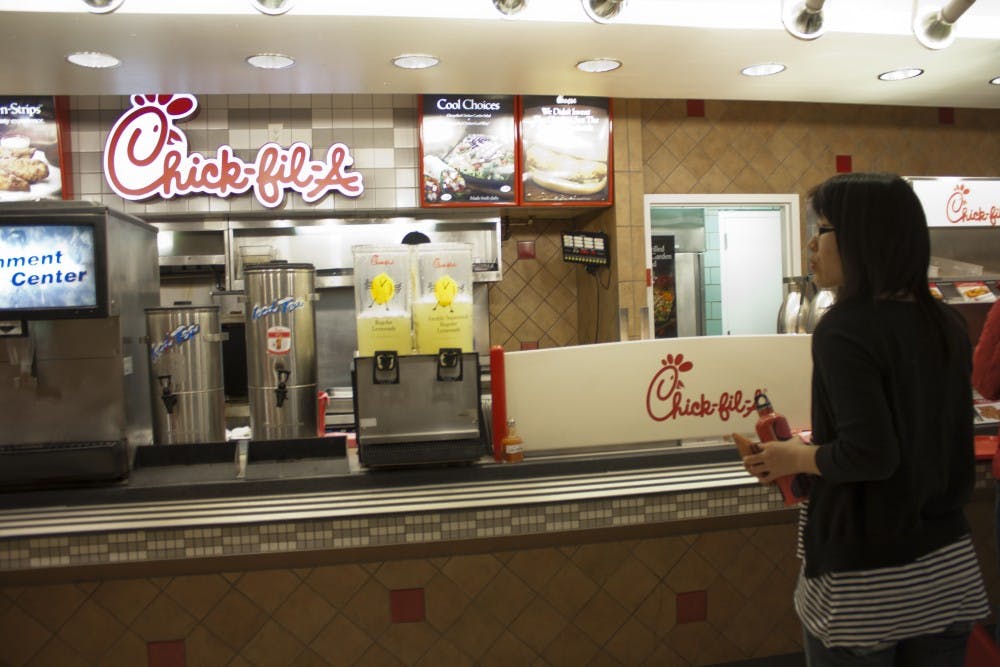Harvey Milk, one of the first openly gay elected officials in American history, once said, “If a bullet should enter my brain, let that bullet destroy every closet door.”
He would meet his untimely death at 48 when a hail of bullets greeted him. His killer was a former colleague, Dan White, who was outraged at the apparent corrosion of traditional values by Milk among others.
Over 40 years after his death, his call still needs heeding. We must commit ourselves to further equality and do so by boycotting bigoted organizations like Chick-fil-A.
Chick-fil-A is in hot water because of the recent revelation that it donated over $1.8 million to anti-LGBTQ organizations through its foundation in 2017. This is nothing new. In the past, it has, once again through foundations, funded groups that sought to cure being gay as a disease, institute marriage as only between a man and a woman, etc.
This moment deserved a renewed call for boycotting Chick-fil-A and the repulsive practices it helps fund.
However, there are many who disagree. In 2015, Samantha Allen, a senior reporter at The Daily Beast, wrote that it was time to forgive Chick-fil-A for its past. Arguments like Allen’s, argue that since the Supreme Court declared gay marriage legal in Obergefell v. Hodges, there is no need to waste cultural capital fighting these battles.
They’re deadly wrong. The recent allegations prove that Chick-fil-A’s support for bigoted organizations is not merely a checkered past but a hateful present.
There are no federal laws today which prevent discrimination on the basis of gender identity or sexual orientation. Most of this lawmaking is left to individual states. Indiana protects marriage equality, but protections against housing and employment discrimination are found wanting.
Chick-fil-A’s employment non-discrimination policy does not include LGBTQ people and it nets a zero on the Human Rights Campaign’s Buyer’s Guide. The struggle for equal protection under the law has been a long one and organizations like Chick-fil-A have been obstacles every step of the way. They deserve nothing less than being shunned.
It is true that despite all the negative media attention, Chick-fil-A has been growing rapidly and will soon become the country’s third-largest fast-food chain. However, the truth is that boycotts rarely ever hurt company bottom lines and using that as a metric of success is deeply flawed.
The true strength of boycotts lies in their ability to go viral and then force companies to commit to making amends. In 2012, the first set of revelations regarding Chick-fil-A’s funding of organizations with a history of bigoted actions were laid bare. It led to calls for boycotting Chick-fil-A by some and appreciation for it by others.
It is important to keep in mind that in 2012, according to a Pew Research Center survey, 48 percent of Americans supported same-sex marriage. In stark contrast, by 2017, 62 percent did.
Such a boycott today would likely be received very differently than it in 2012. Marriage equality is now the status quo and not some pie-in-the-sky idea. It is much more likely today that a boycott against Chick-fil-A would be successful and it is imperative that we try.
NBC News notes that the San Antonio City Council just voted to block Chick-fil-A from opening a branch at the San Antonio International Airport due to the company’s history of supporting anti-LGBTQ initiatives.
The boycotts of today are not those of yesterday. Bloomington, as a community, must vote with its wallet every day and choose to not frequent Chick-fil-A. Only when companies like these move out of the way can there be justice for the LGBTQ community.






